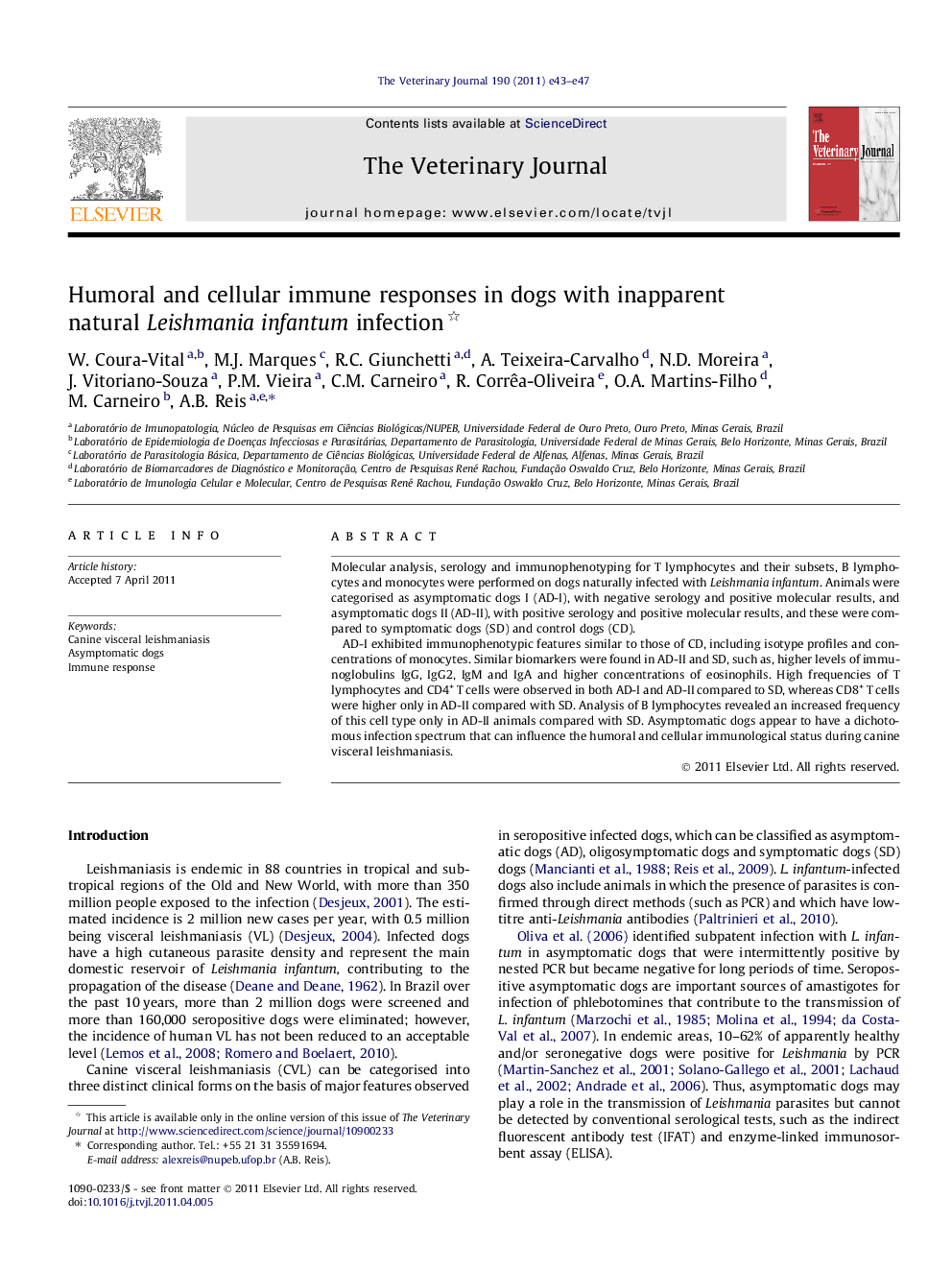| کد مقاله | کد نشریه | سال انتشار | مقاله انگلیسی | نسخه تمام متن |
|---|---|---|---|---|
| 2464524 | 1111799 | 2011 | 5 صفحه PDF | دانلود رایگان |

Molecular analysis, serology and immunophenotyping for T lymphocytes and their subsets, B lymphocytes and monocytes were performed on dogs naturally infected with Leishmania infantum. Animals were categorised as asymptomatic dogs I (AD-I), with negative serology and positive molecular results, and asymptomatic dogs II (AD-II), with positive serology and positive molecular results, and these were compared to symptomatic dogs (SD) and control dogs (CD).AD-I exhibited immunophenotypic features similar to those of CD, including isotype profiles and concentrations of monocytes. Similar biomarkers were found in AD-II and SD, such as, higher levels of immunoglobulins IgG, IgG2, IgM and IgA and higher concentrations of eosinophils. High frequencies of T lymphocytes and CD4+ T cells were observed in both AD-I and AD-II compared to SD, whereas CD8+ T cells were higher only in AD-II compared with SD. Analysis of B lymphocytes revealed an increased frequency of this cell type only in AD-II animals compared with SD. Asymptomatic dogs appear to have a dichotomous infection spectrum that can influence the humoral and cellular immunological status during canine visceral leishmaniasis.
Journal: The Veterinary Journal - Volume 190, Issue 2, November 2011, Pages e43–e47